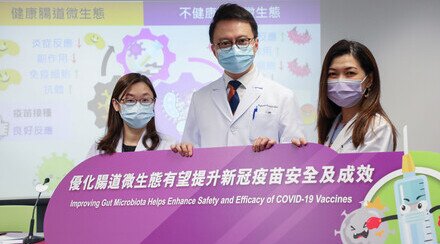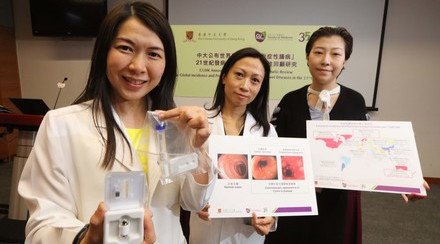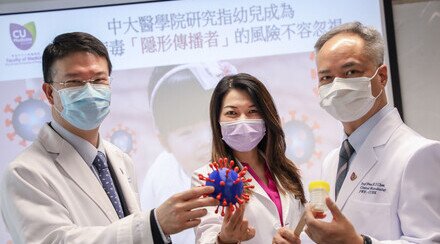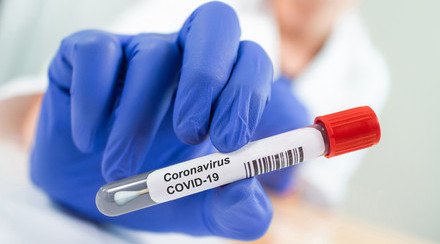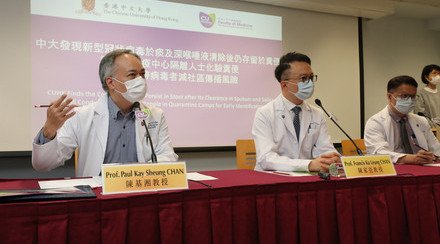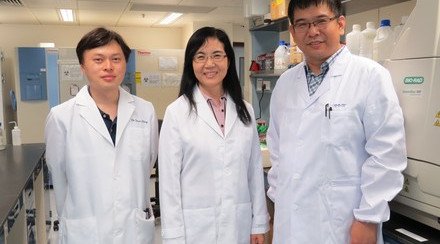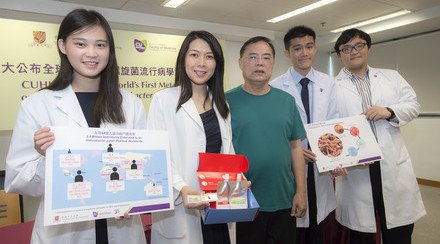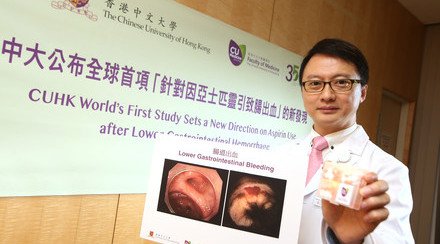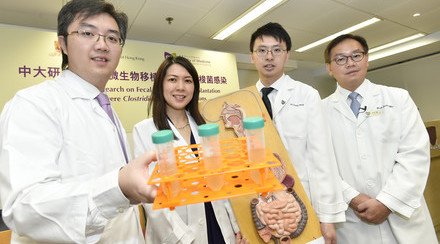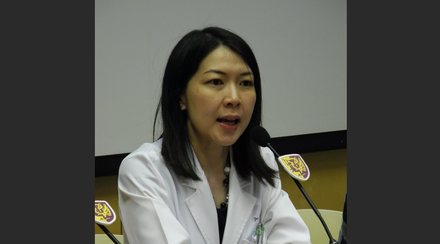CUHK Develops a Novel Faecal Test that can Detect Polyps and Early Colon Cancers with Sensitivity Over 90%
The faecal immunochemical test (FIT) is commonly used to screen for colorectal cancer but it has low sensitivity (around 50%) for early cancer detection and fails to detect polyps. The Faculty of Medicine at The Chinese University of Hong Kong (CU Medicine) has developed the world’s first faecal “bacterial gene markers” test (M3) based on metagenomic analysis of over 1,100 cancer subjects. The sensitivity of this non-invasive test is 94% for colorectal cancer detection which is comparable to that of a colonoscopy. The test can also accurately detect polyp recurrence with over 90% sensitivity. It is the first test to offer a non-invasive approach to screen for polyp recurrence. The novel test can spare patients from an unnecessary colonoscopy thus reducing the risk of invasive testing and the pressure on medical services. The research findings on early colon cancer detection have been published in the high impact international medical journal Gut.
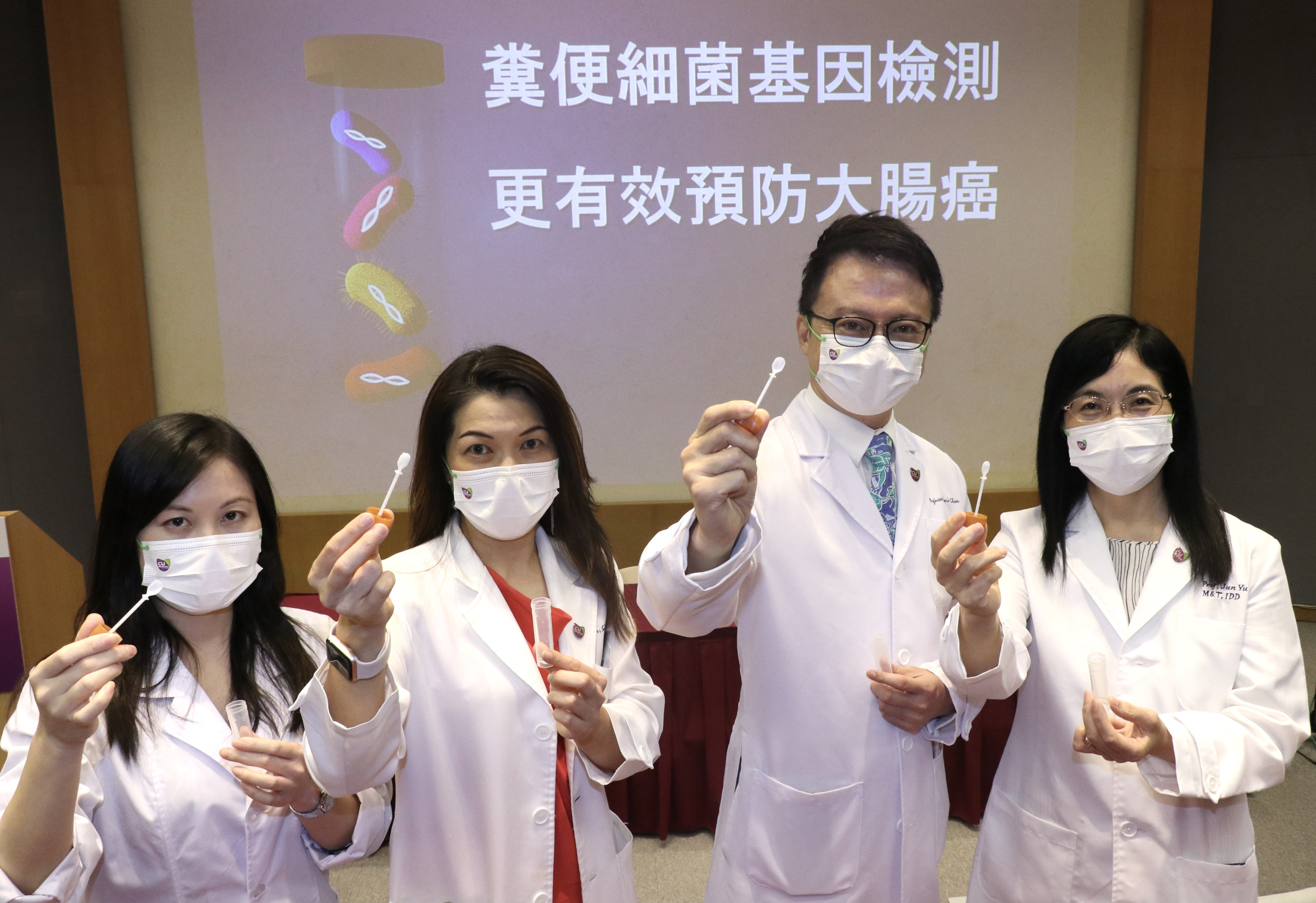
CU Medicine develops a novel bacterial gene markers test that can detect polyp recurrence and early colon cancers with sensitivity over 90%.
(From left) Prof. Jessie LIANG, Research Associate Professor of the Department of Medicine and Therapeutics; Prof. Siew NG, Associate Director of the Centre for Gut Microbiota Research; Prof. Francis CHAN, Dean of Medicine and Director of the Centre for Gut Microbiota Research, at CU Medicine; and Prof. Jun YU, Director of the State Key Laboratory of Digestive Disease (CUHK).
Early Detection and Treatment of Colorectal Cancer Improves Survival
According to statistics of the Hong Kong Cancer Registry on colorectal cancer diagnosed between 2010 and 2017, the 5-year survival rate of patients with stage I colorectal cancer was 96%, but it dropped dramatically to less than 10% when patients were diagnosed at stage IV. Early diagnosis and treatment of cancers are associated with a favourable prognosis. As most colorectal cancers originated from polyps, early detection and removal of polyps can prevent the development of cancer.
Major Shortcomings of Current Screening Tools for Colorectal Cancer and Polyps
Current colorectal cancer screening tools have two major shortcomings. Firstly, FIT cannot accurately detect early colorectal cancer with less than 50% sensitivity and a high false-negative rate. Secondly, no non-invasive tool exists for the detection of recurrent polyps. These patients need to undergo surveillance colonoscopy on a regular basis to detect polyp recurrence. The inconvenience and discomfort of repeated colonoscopies deter many people from having the examination. It also adds a huge demand to the existing burden for colonoscopy services.
Bacterial Gene Markers Test Has the Potential to Enhance Effectiveness of Colorectal Cancer Screening
Using data from metagenomics sequencing, the research team from CU Medicine identified a group of four unique bacterial DNA markers, known as M3, which is effective in detecting colorectal cancer. Through analysis of stool samples from over 1,100 participants, including individuals with colorectal cancer and polyps, M3 CRC showed a 94% sensitivity in detecting colorectal cancer. The sensitivity of M3 is comparable to that of a colonoscopy for cancer detection (94%) and supersedes that of FIT for early cancer (50%) and polyp (<10%) detection.
The research team also tested the accuracy of M3 in the detection of recurrent polyps. They followed over 200 subjects who had undergone polyp resection within 5 years. They found that subjects who developed polyp recurrence had higher levels of M3 in their stool samples than those without recurrence. Using their novel proprietary detection algorithms, the M3 CRC test showed a remarkable sensitivity of over 90% for detecting recurrence of polyps.
Prof. Francis Chan explains that the stool sample for bacterial gene markers test can be collected at home, sparing users from bowel preparation. He hopes this can enhance the public acceptance of colorectal cancer screening.
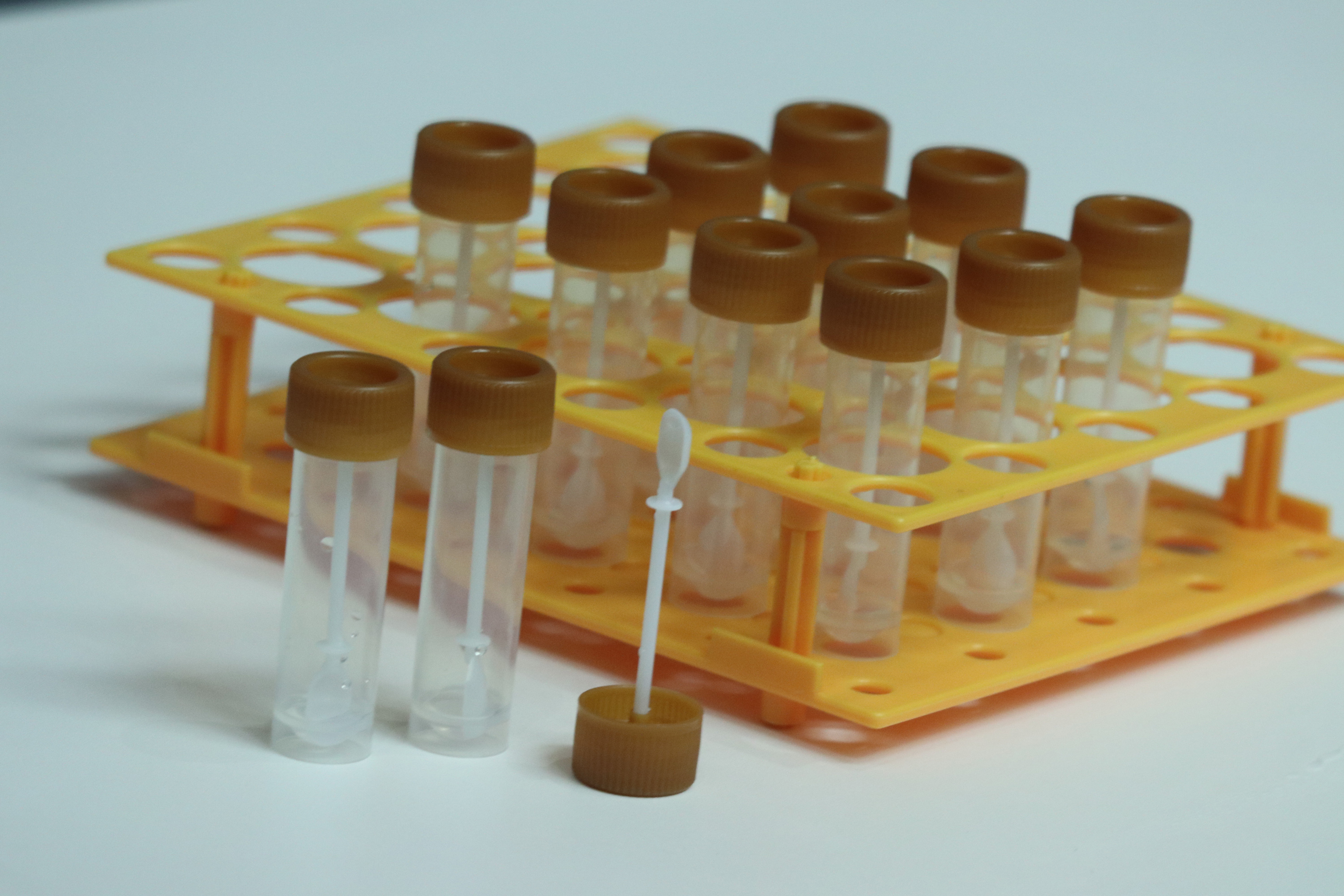
The bacterial gene markers test only requires users to collect a small amount of stool sample and send to the laboratory for analysis.
Professor Jun YU, Professor of the Department of Medicine and Therapeutics at CU Medicine, highlighted, “The M3 CRC test is the result of our research team’s hard work for over a decade. We have successfully identified novel faecal bacterial markers that can accurately detect colorectal cancer and polyps which can now serve as a non-invasive tool for many patients and their families.” Professor Jessie Qiao Yi LIANG, Research Associate Professor of the Department of Medicine and Therapeutics at CU Medicine added, “Our recent study further showed that the clinical application of M3 is not limited only to cancer detection but it can also be applied to predict polyp recurrence. With this new innovation, we are hopeful that the number of unnecessary colonoscopies could be reduced.”
Professor Siew Chien NG, Associate Director of the Centre for Gut Microbiota Research at CU Medicine, stated, “This discovery is based on our unique metagenomic dataset of thousands of subjects. The data are reproducible and can potentially be applied globally. Unlike blood tests or colonoscopic procedures that need clinic or hospital visits, this test only requires a small sample of stool and can be performed at home. The bacterial gene markers test can detect cancer early, when it can be cured. We are thrilled to report that it can also detect polyps, making colorectal cancer prevention a reality”.
Professor Francis KL CHAN, Dean of Medicine and Director of the Centre for Gut Microbiota Research at CU Medicine regarded this new innovation as a prime example of successful translational research whereby scientific findings can be transformed into a clinical screening tool. He remarked, “Globally, approximately 2,800 million people are eligible for colorectal cancer screening. The potential of bacterial gene markers is huge. Not only can it assist us in prioritising medical resources, it will also bring benefit to both individual patients and society as a whole.”


